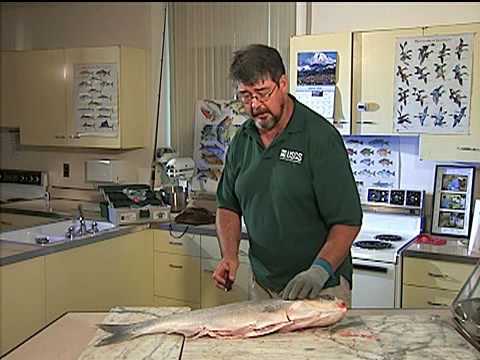
One way to do your part to help stop the spread of Asian carp into new lakes and streams is to catch and eat them. Bighead and silver carp have excellent quality flesh, similar to cod, but they have bones in their fillets, which create problems when eating the fish.
Here is a link to part one of a three-part video on YouTube demonstrating how to clean Asian carp. This video is a joint project of U.S. Geological Survey, Louisiana Sea Grant, LSU AgCenter, Illinois-Indiana Sea Grant, and U.S. Fish and Wildlife Service. (Duane Chapman –who is on camera–is with USGS; LSU produced the video, IISG wrote the script and is funding the printing and distribution of the DVDs.)

